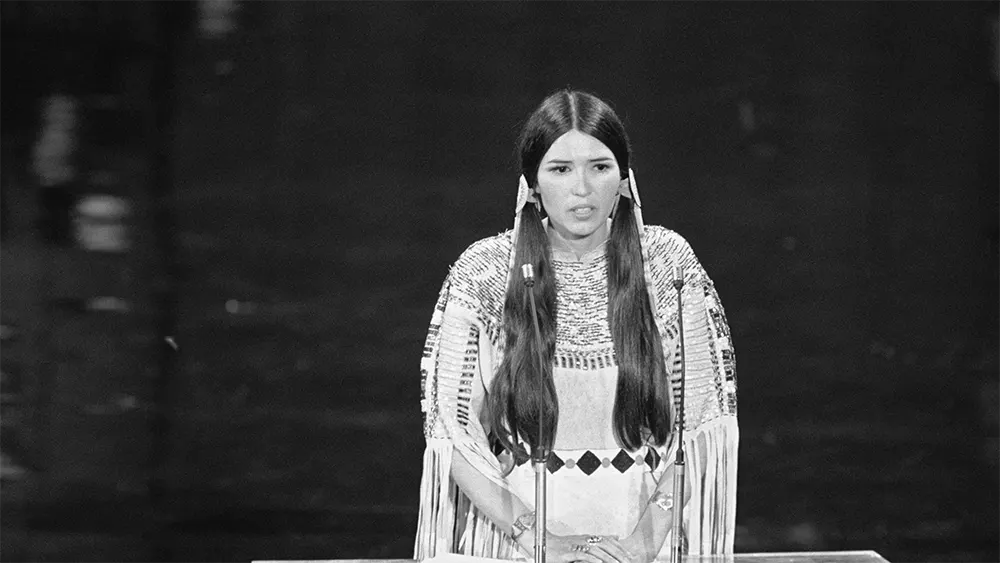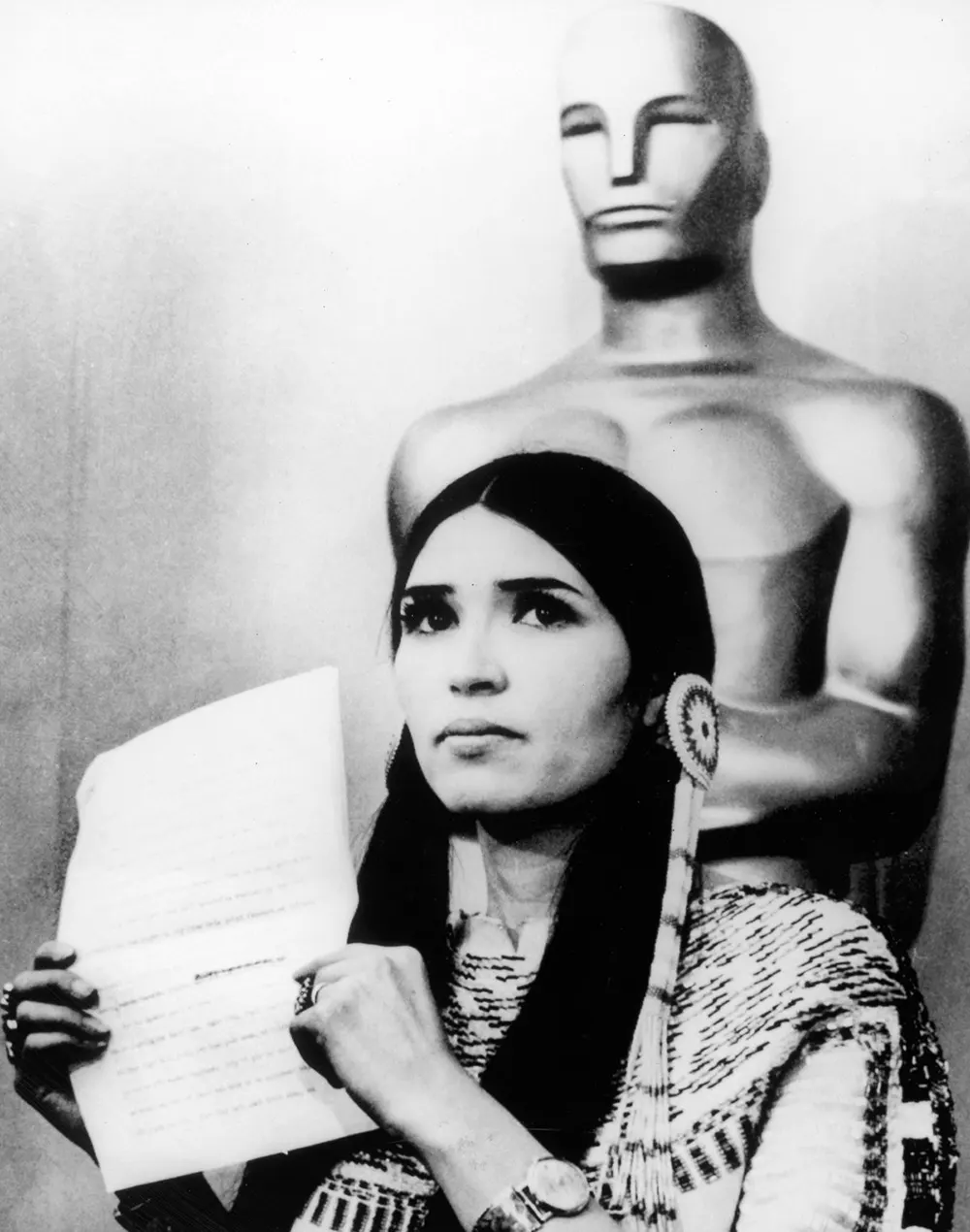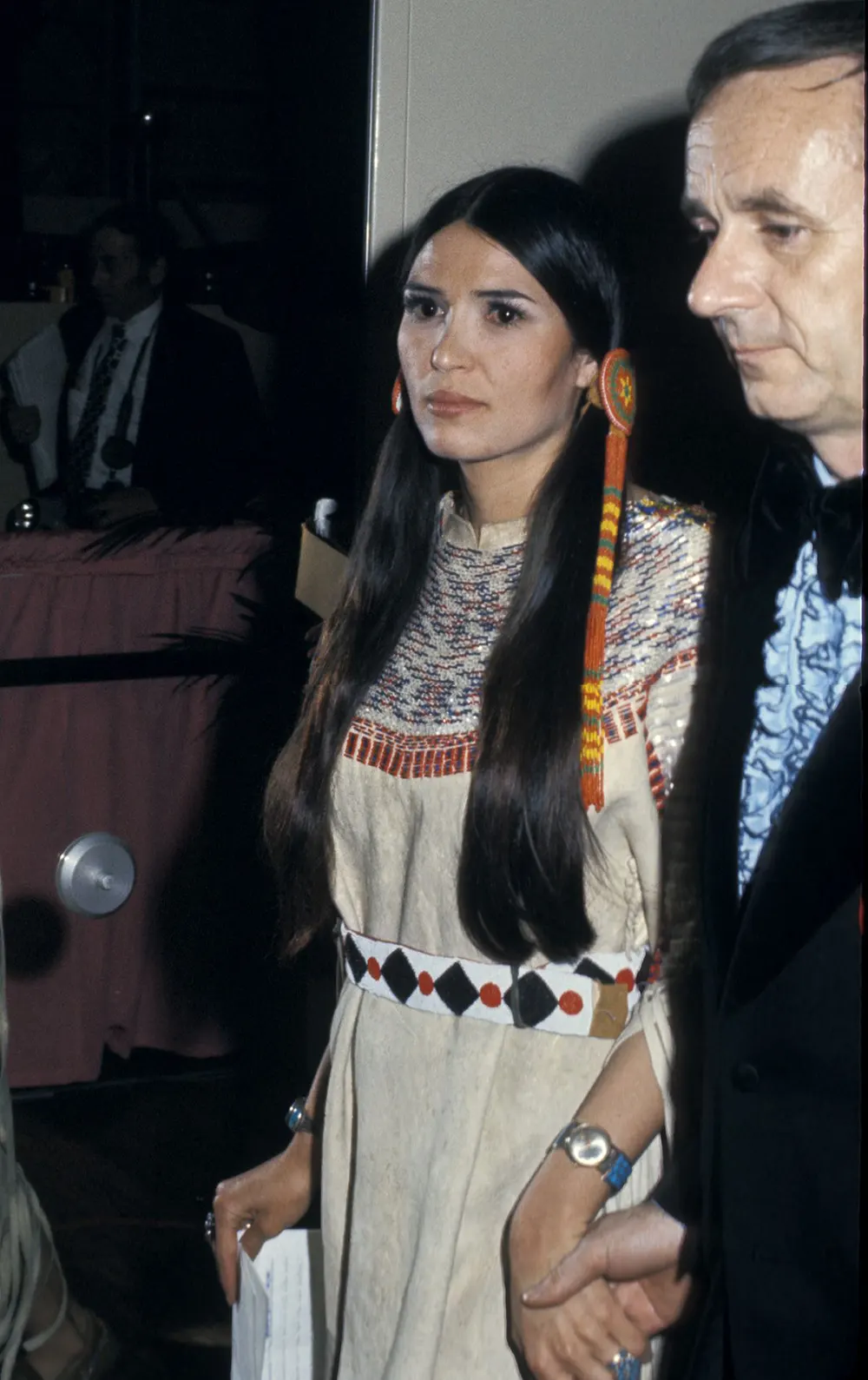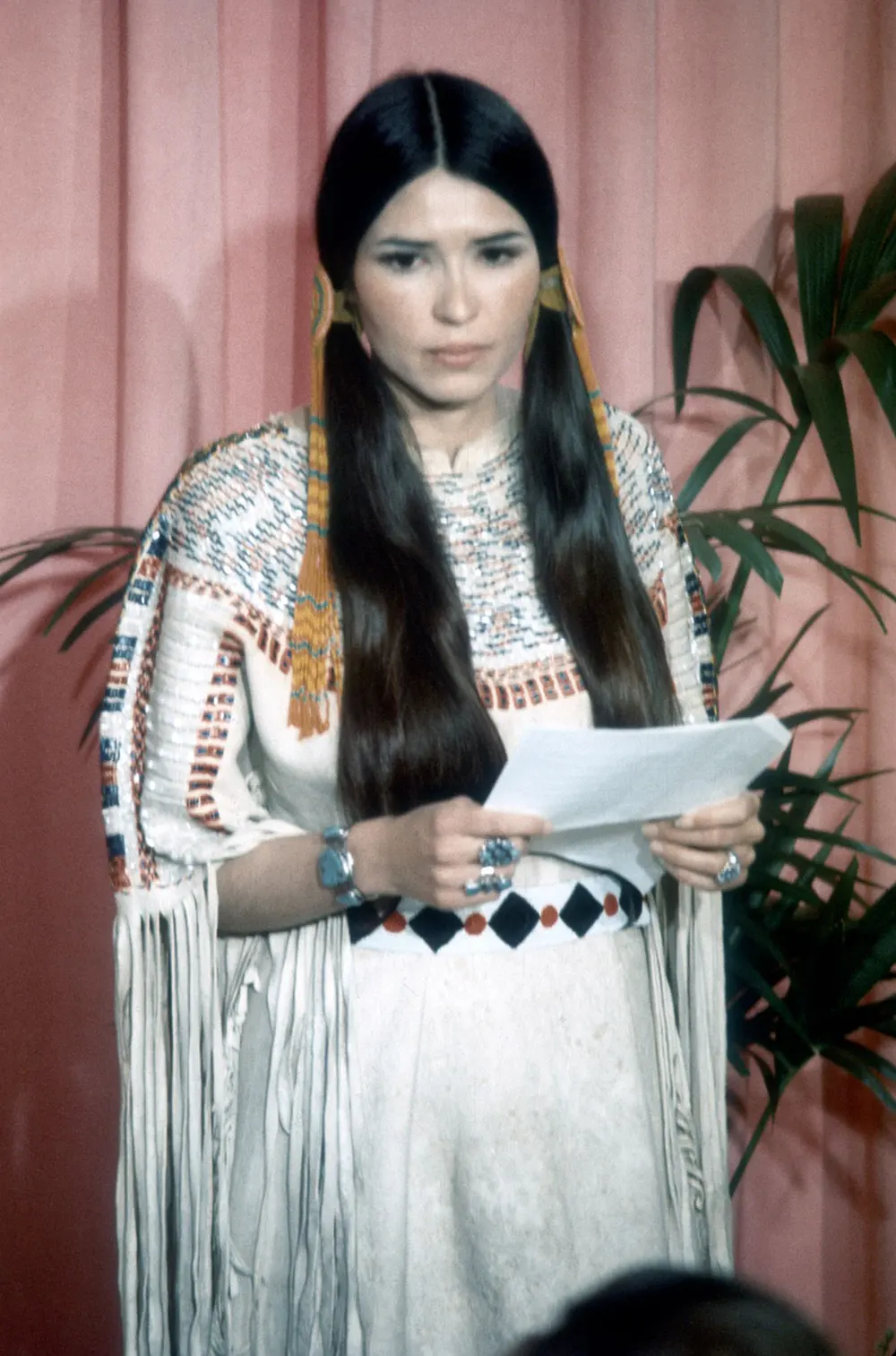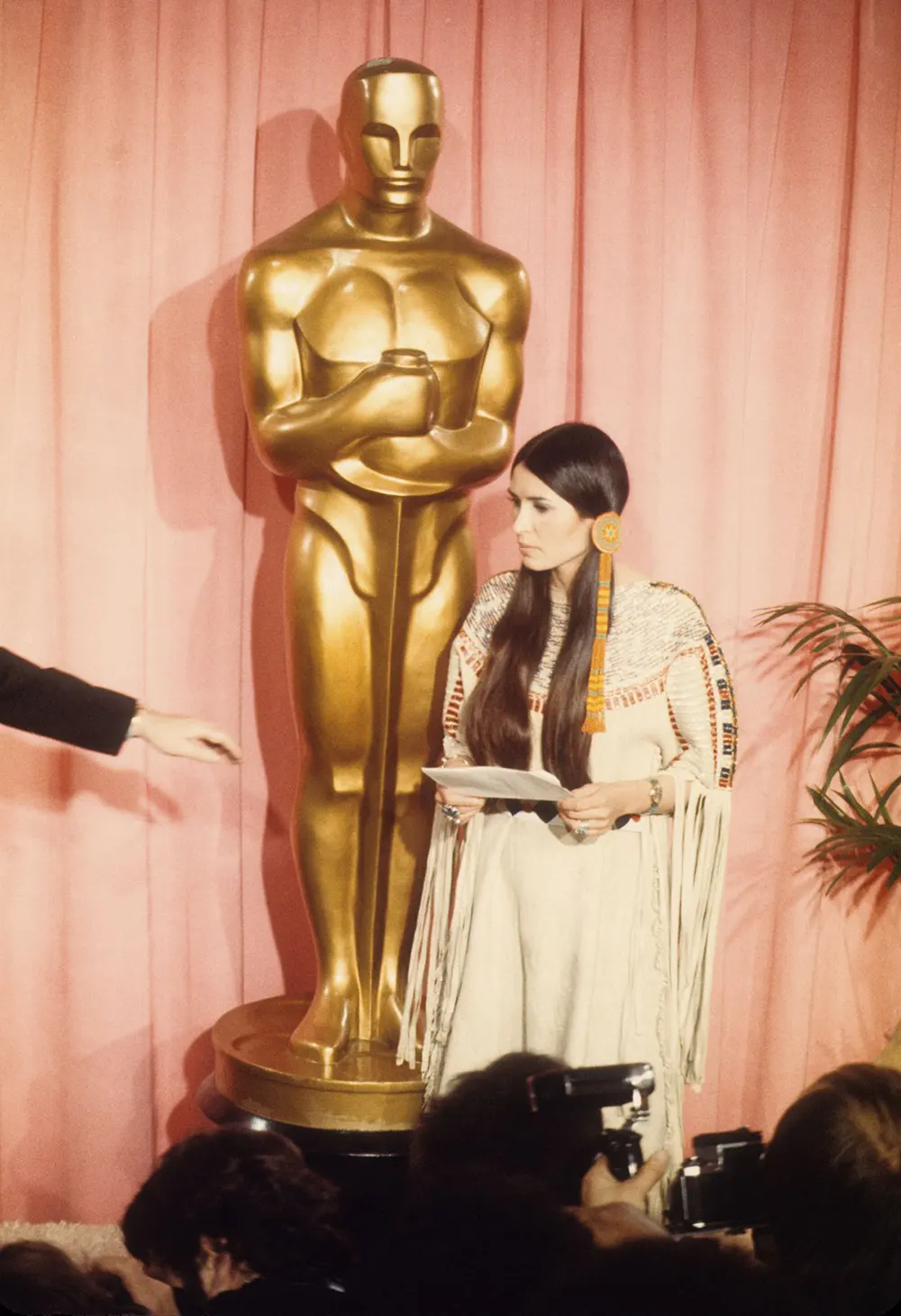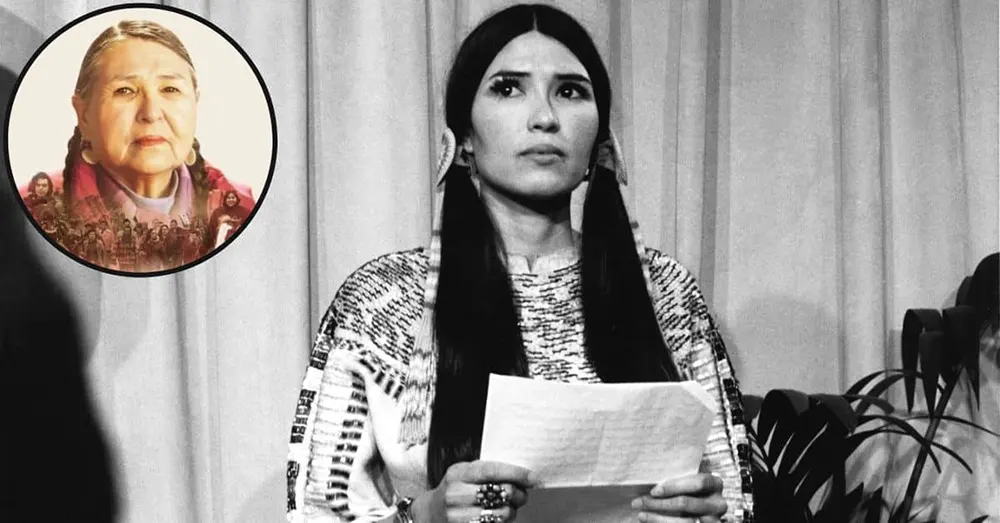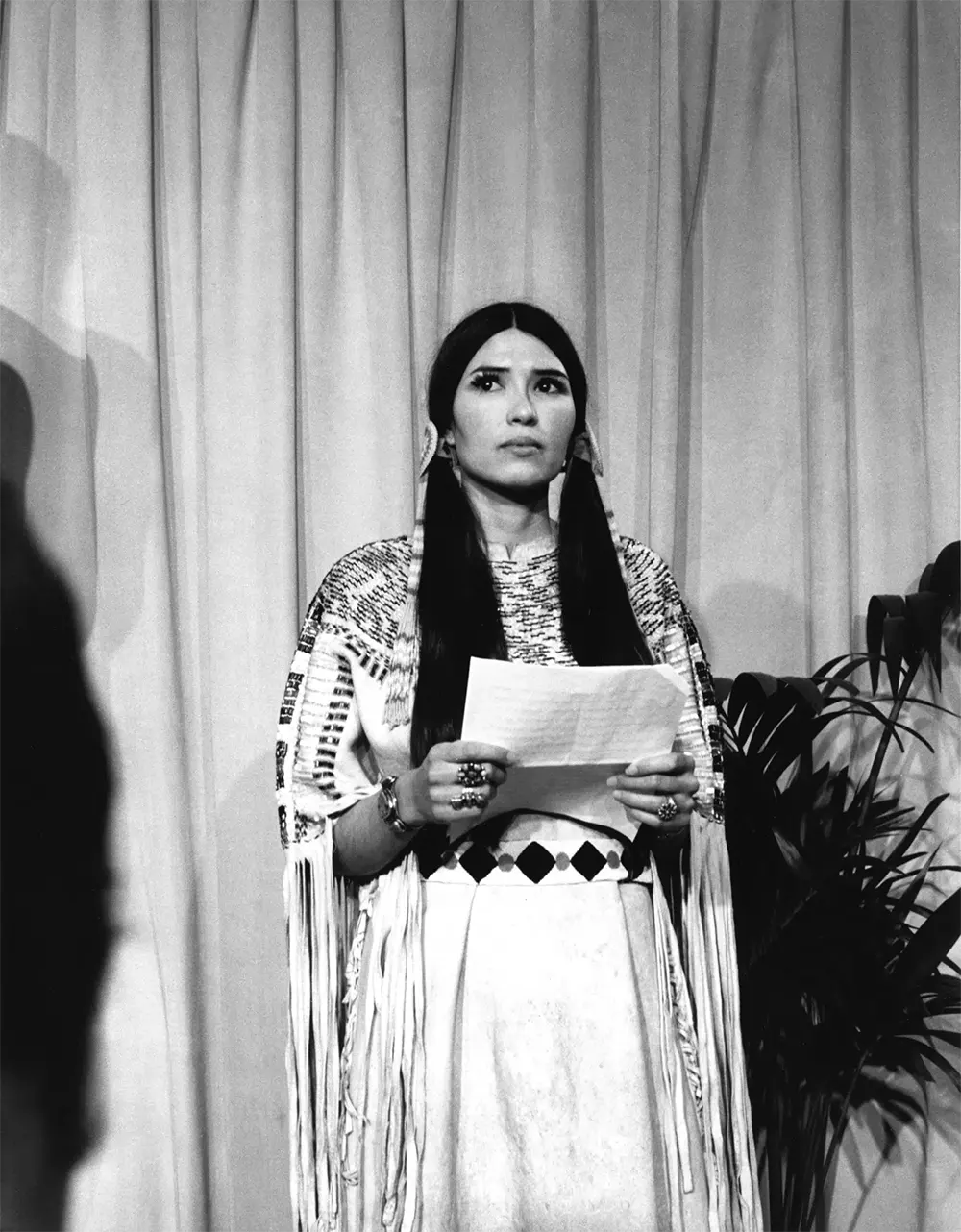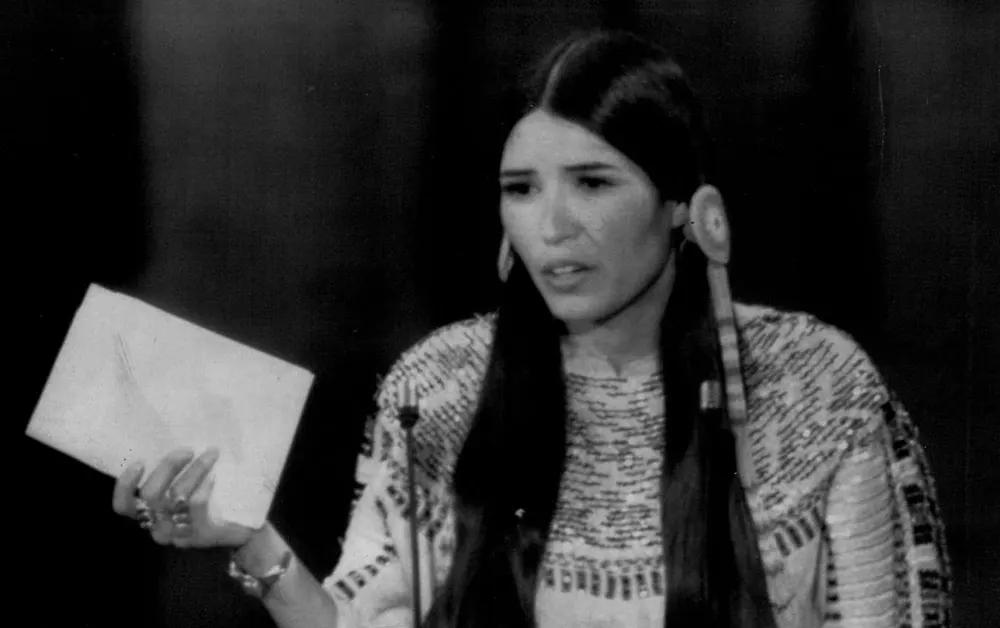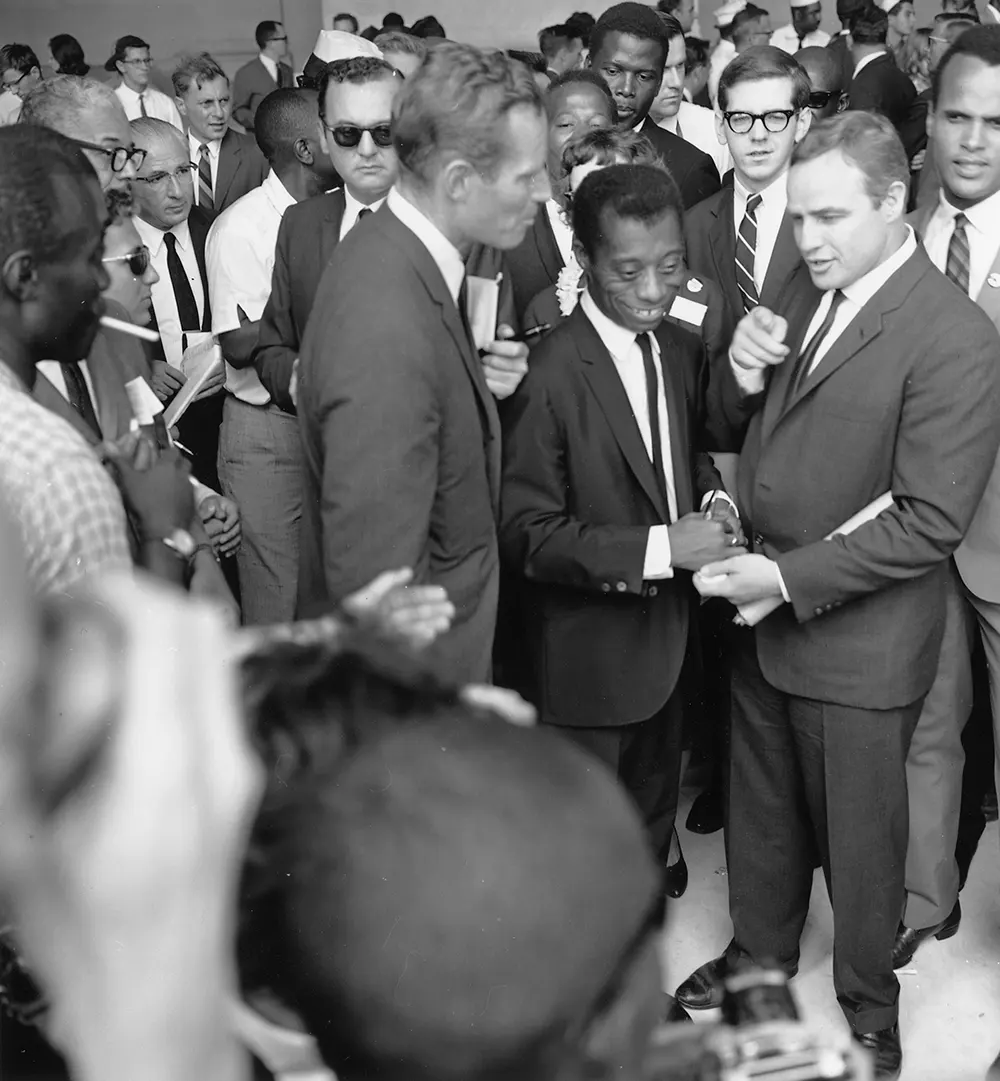The favorite to win, Brando boycotted the ceremony as a protest against Hollywood’s portrayal of Native Americans and to draw attention to the standoff at Wounded Knee. During her speech, the audience’s response to Brando’s boycotting was divided between booing and applause. Marie Louise Cruz was born in 1946 to a white mother and a father of Apache, Yaqui, and Pueblo descent. After high school, she took the name Sacheen Littlefeather to reflect her Native American heritage. During the 1969 occupation of Alcatraz, she became involved in the Native American activist community. The 19-month-long Alcatraz protest garnered widespread sympathy and was visited and supported by celebrities including Marlon Brando. Littlefeather joined the audience minutes before the award for Best Actor was announced. She was accompanied by Brando’s secretary, Alice Marchak, and wore an Apache buckskin dress. Producer Howard W. Koch, she would later say, told her “you can’t read all that” in reference to the 739-word speech written by Brando, so she condensed it all into 60 seconds. In other retellings of that night, Littlefeather said Koch told her that she had 60 seconds to deliver the speech or else she would be removed from the stage and arrested. The Best Actor award was presented by Norwegian actress Liv Ullmann and British actor Roger Moore. After giving brief remarks and announcing the five nominees, they declared Brando as the winner. Littlefeather walked onto the stage and raised her hand to decline the Oscar trophy that Moore offered her. Deviating from the prepared speech, she said the following: Hello. My name is Sacheen Littlefeather. I’m Apache and I am president of the National Native American Affirmative Image Committee. I’m representing Marlon Brando this evening, and he has asked me to tell you in a very long speech which I cannot share with you presently, because of time, but I will be glad to share with the press afterwards, that he very regretfully cannot accept this very generous award. And the reasons for this being are the treatment of American Indians today by the film industry – excuse me… [boos and cheers] and on television in movie re-runs, and also with recent happenings at Wounded Knee. I beg at this time that I have not intruded upon this evening, and that we will in the future, our hearts and our understandings will meet with love and generosity. Thank you on behalf of Marlon Brando. [applause] Moore escorted Littlefeather off-stage, past several people critical of her, and towards the press. Littlefeather stated in 2022 that some people used the tomahawk chop towards her as she was led by. Oscars producer Koch and director Marty Pasetta both later recalled that John Wayne was waiting in the wings and had to be restrained by six security guards to prevent him from forcing her off stage. At the press conference, Littlefeather read to journalists the speech that Brando had prepared; The New York Times published the full text the next day. The audience in the Dorothy Chandler Pavilion applauded and cheered. Brando and Littlefeather’s protest was generally considered inappropriate for the awards ceremony. “I was distressed that people should have booed and whistled and stomped, even though perhaps it was directed at myself,” Brando later told Dick Cavett. “They should have at least had the courtesy to listen to her.” Her appearance prompted the Academy of Motion Picture Arts and Sciences to rule out future proxy acceptance of Academy Awards. After giving the speech, Littlefeather spent two days in Los Angeles before returning to San Francisco. She later claimed that she visited Marlon Brando’s house after the Academy Awards and bullets were fired into his front door while they were talking. According to Ann Brebner of the Brebner Agency, which handled Littlefeather’s modeling bookings, she was deluged with mail and phone calls after her Oscars appearance, which led to radio and television appearances as well as the opportunity to read for multiple film roles. In the years immediately following the protest, Littlefeather said that it had “had little effect on the course of her career.” Later, though, Littlefeather claimed she was blacklisted by the Hollywood community and received threats. In June 2022, the Academy sent Littlefeather a statement of apology, in which the organization’s then-president David Rubin wrote: “The abuse you endured because of this statement was unwarranted and unjustified. The emotional burden you have lived through and the cost to your own career in our industry are irreparable. For too long the courage you showed has been unacknowledged. For this, we offer both our deepest apologies and our sincere admiration.” In regards to the Academy’s apology to her she described it as “a dream come true,” and that “we Indians are very patient people—it’s only been 50 years!” She added, “We need to keep our sense of humor about this at all times. It’s our method of survival.”
(Photo credit: Wikimedia Commons / Mashable / Flickr / Pinterest / Britannica). Notify me of new posts by email.
Δ Subscribe
